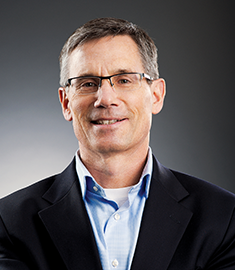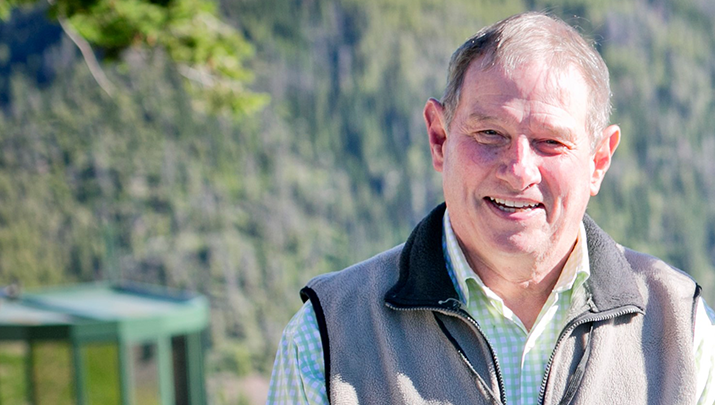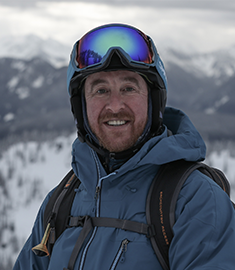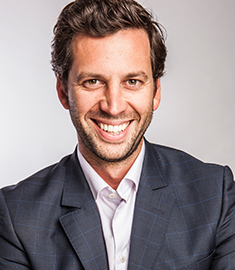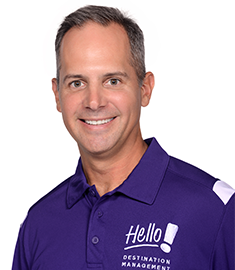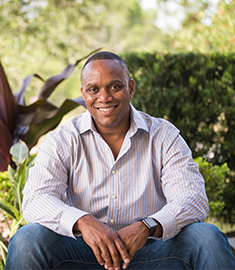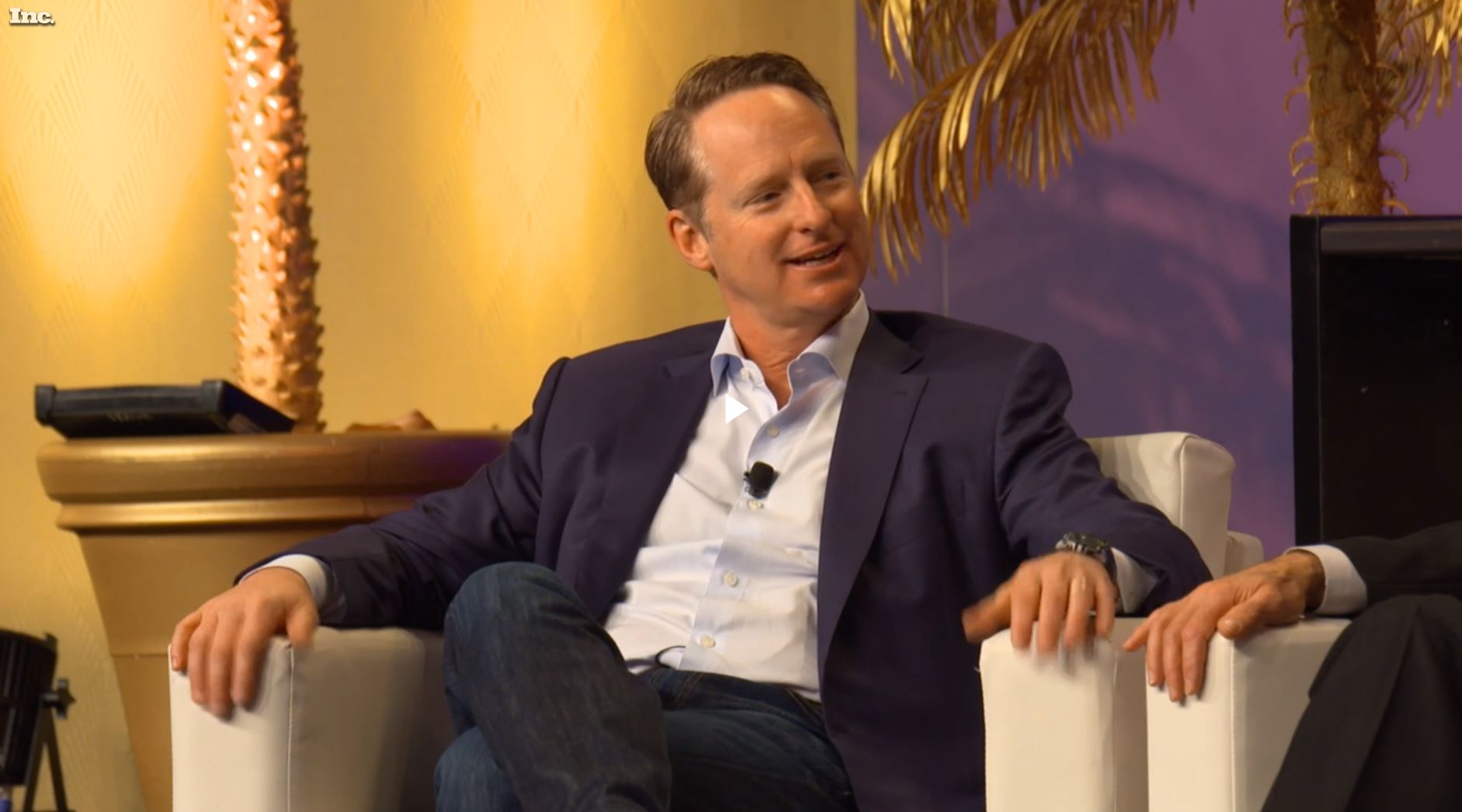Embrace Innovation By Hiring Millennials
Our Evergreen company is 67 years old. If we didn’t continually embrace innovation, it would mean the end.
Maybe this sounds a little dramatic, but the strength of our company, Metalcraft Inc., rests on our ability to move forward with ideas, especially around technology. And we’ve found that the best way to find these new ideas is to hire the next generation. This is why six years ago, we took a young staff member’s suggestion to create an Innovation Team.
Metalcraft Inc. is a manufacturer of identification nameplates and labels such as metal bar codes and property tags. More specifically, we produce durable serialized bar code and RFID (radio-frequency identification) products for fixed and mobile assets including returnable containers, access control and OEM applications.
For the first 35 years of the company’s existence, our product line was limited. That changed when we expanded to bar code technology solutions in 1985, and then made the decision to provide greater value for our customers with RFID technology in 2001. To understand how revolutionary RFID technology is, think about a trip to the grocery story. At checkout, you have to wait while the cashier scans each bar code individually. With RFID tags on the products, a network can tell where each labeled item is at any given time, and you could simply be charged for each item you carry out of the store.
Although we’re not quite there yet, we realized early on that we had to be big players in RFID. But we also realized that making this leap into new technology (even beyond RFID) meant we needed to attract workers who would embrace innovation. That’s easier said than done when you’re based in northern Iowa, two hours from any major city.
In 2012, we found our solution in a young member named Kyle Bermel. He suggested we create an Innovation Team. Kyle felt that by putting together a group of team members to discuss objectives and goals on a regular schedule, it would help push forward new ideas and create excitement among the staff. It would also reflect Metalcraft’s willingness to be cutting edge — and perhaps attract the millennials we knew were the future of our company.
We went for his plan. Kyle determined that the Innovation Team should be by invite only and no larger than six or seven people who meet the criteria of being collaborative, creative and open-minded. We invite people to join if they seem like the right fit. They gather every week for an hour or two to discuss ideas generated from the team and from the rest of the company. In fact, just recently they implemented a quarterly Innovation Rewards Challenge where they ask all members for suggestions on certain topics and then any member may vote on these ideas.
The team members are a mix of millennials and Generation X. We’ve rolled out about six or seven key ideas from this team. They’ve run the gamut from moisture sensors to adding a ping-pong table to the office.
Not every idea works out, and that’s OK. One big failure was when the team got too excited about creating hog sensor tags; they didn’t do all the necessary research before attempting to push this idea through. While it was a great idea, hog farmers rejected it — fortunately before we spent a lot of money on making the product — as being too expensive.
The Leadership Team, which I head, must ultimately approve any ideas the Innovation Team generates. However, the only time I step in as a leader is to pull back the reins if their enthusiasm and love for an idea is too strong. If you fall in love with an idea before it’s properly vetted, you’ll say it’s successful even if it’s not.
But for the most part, we feel we need to let them pursue these ideas even if they might not work. If we don’t give them this freedom, the spirit of innovation will die.
The Innovation Team has changed our whole culture. They’ve created camaraderie in the office and made this an exciting place to work. And word is getting out. Since Kyle started our Innovation Team, we’ve established a reputation as a place where people want to work. Millennials want to make an impact fairly quickly; they don’t want to sit back for five years learning the ropes. We’ve created an avenue for them to make that kind of impact.
Since implementing the Innovation Team, we’ve grown from 81 employees to 101. Our revenues have gone up nearly 50 percent, and I believe this team has had a great impact on that.
We now have an aura about us. As an employee here, you have the ability to add value and be rewarded. We never rest on our laurels — we’ll continue to innovate for the long run.
Steve Doerfler is the President & CEO of Metalcraft Inc.
The Inadvertent Multigenerational Family Business: Secrets of Longevity
Multigenerational family businesses are a testament to the Evergreen 7Ps, particularly their importance through decades, if not a century, of technological advances, economic cycles, interpersonal family dynamics and competition both domestically and abroad.
Tugboat Institute Summit guest speaker Spencer Burke is an expert in guiding families and their businesses through these inevitable challenges in his work at The St. Louis Trust Company and Washington University in St. Louis. His deep understanding of their history and practices has allowed him to synthesize and share specific strategies that enable multigenerational businesses to thrive for the long haul. As Burke states in his talk, “It’s not a straight line. … Sometimes you need to reinvent yourself and keep moving forward.”
Pursuing Purpose in Chile
I had a midlife crisis at age 32. Working 80 hours a week as a healthcare consultant in a messy industry left me miserable and completely burned out. Every day, I’d watch a co-worker, Ted, gallop into the office with such enthusiasm about his job, it made me feel even worse about my own ennui and dissatisfaction. It struck me that I needed to do something in my life that made me feel like Ted. I needed a Purpose.
So I quit my job. In 2003, I uprooted my wife and myself from Maine and moved to Chile, where I launched a thriving adventure travel company.
Of course, this didn’t happen immediately. At first, we were there simply for a respite. My wife provided the inspiration, as she had studied in South America and spoke fluent Spanish (which I did not) and she wanted to show me the country and culture. I just wanted to ski and bike and get out of my head for a bit. So we planned a seven-month trip from Chile to Ecuador.
By the end of the trip, though, we felt so free and unplugged, we couldn’t go back to New England. We decided to settle in Santiago, Chile, because it’s safe and the economy is very stable by South American standards. Also, it’s right next to the Andes, which have some of the best ski resorts in the world. Since I craved being outdoors after my years cooped up in the corporate world, I decided to work in the travel industry as a guide. I figured someone would hire me to take travelers hiking, horseback riding, skiing or fly-fishing.
Turns out, no one wanted to hire a guy who was new to Chile, who had never been a guide before and who didn’t speak Spanish.
Undeterred, I decided to start my own guide business called Santiago Adventures, based on my own experiences as a traveler in the region. It was perfect timing because in 2003 Santiago was emerging as a new business hub. Many large corporations were moving into the area and suddenly there was an influx of foreign visitors, including Americans.
While skiing, I met a lawyer who helped me set up shop. It’s not terribly difficult to start a business there, but in Chile, you need someone with a social security number in the system. As an outsider, you usually have to pay someone local to be your representative, and this guy volunteered to be listed as our company’s rep until we could finally establish residency three years later. (Yes, I realize I’m very fortunate he wasn’t a scam artist!)
Within about 15 days of getting his name in the system, we were open for business. Through word of mouth, we had our first customers in early 2004. I built our website, which I loaded with rich stories about the area and things to do, and set up six tours around the central region of Chile. Pretty quickly, we were getting great Google reviews for tours.
For the first year, I worked as our sole guide. Then I started hiring freelancers. I realized travelers wanted to interact with a Chilean who could speak English — someone with professional tourism experience. I also hired local Chileans in the office to help figure out business operations for travel and to contact suppliers to build our network.
Culturally, being the gringo is a double-edged sword. Chileans have a supportive interest in what you’re doing as an outsider, but I did have to be careful. I came at this endeavor implicitly trusting people, asking lots of questions and hiring people based on a handshake.
I only got burned once. Chile has a strict tax-monitoring system, and an accountant we employed took advantage of our ignorance. He told me that I would end up in jail if I didn’t do things his way. We lost a bit of money to him, but I wised up and hired a staff accountant. I figure it’s the cost of learning to run a business, especially in another country. This experience did make me hyperaware that we always need to do right with the rules and regulations and ethics. We don’t want to cut corners, and this includes paying people decent wages and on time.
In 2006, we branched out to Argentina with a big wine tour group. Being on both sides of the Andes has been great, because while Argentineans have a rivalry with Chileans, they have no problem working with an American guy. In 2011, we added Uruguay to our destinations.
Over the years, we’ve had a few mishaps, but never having to do with the regulations. For instance, in 2010, there was a terrible earthquake that left a few of our customers stranded. We solved all the travel issues for them, but the country took a tourist hit — our phone didn’t ring for six months. But we kept promoting Chile, and by 2011 we were doing tours in the entire country, not just in the Santiago region.
After we spent 10 years in Chile, my wife and I finally moved back to New England so that our son could grow up around family. It was really hard to leave my 12 employees and my adopted country. I still own the company, and I am still the CEO, but on the whole our move back to the U.S. has been better for its growth and progress. I’m a micromanager, and this distance has given me the opportunity to think in broader ways and look at new opportunities, partnerships and clients.
In 2015, we relaunched the company as Upscape. It has doubled in size in terms of employees and tripled in terms of revenue. We are the local supplier for big American tour operators — to speak the language on both sides makes us very trustworthy. We have a reputation for taking care of anything on the ground and for providing new and innovative experiences and destinations.
I still travel to Chile every other month to keep an eye on things. It took me seven years to learn the language. I need to keep up my fluency! And even more important, Chile is where I found my Purpose by building my life around this Evergreen company.
Thanks, Ted.
Brian Pearson is the Founder and CEO of Upscape
Update from Rebecca Rusch
As a seven-time ultra-endurance mountain bike world champion, Rebecca Rusch exemplifies Perseverance. In 2017, Rebecca set out on a deeply personal odyssey in search of her father’s Vietnam War crash site and final resting place along the 1,200-mile Ho Chi Minh Trail — a journey documented in the film "Blood Road." At our most recent Tugboat Institute Summit, Rebecca gave us a preview of her enormous project and the inspiration that led to the most important ride of her life.
Maintaining Sanity in the Family Business
Running a family business is not for the weak.
Our company is Evergreen to its core. It started with a businessman with a visionary idea who wanted to create something he could hand down to his children. Through Perseverance the company has flourished, and we children are now at the helm. But our most consistent struggle over nearly 25 years has been balancing our very different skill sets, leadership abilities and temperaments. I guess we can say we succeeded because we still want to spend time with each other outside of the office.
My father, Claude Chevalier, founded Bio-K Plus International, a Quebec-based company that develops probiotics, in 1994, when I was a young teenager. I had a brief moment of wondering why my father was giving up his superstar status as the president of the Dairy Bureau of Canada to found a startup that would be manufacturing and selling a fermented supplement that tasted like spoiled milk (this was long before probiotics was a household term). But based on Claude’s vision, and the knowledge supplied by his scientific partner, François-Marie Luquet, of this soon-to-be-multibillion-dollar category, I quickly became an eager supporter. My sister, Isabèle, and I were high school students at the time, but we spent our nights and weekends helping our parents. I started out officially as a clerk in the warehouse, folding boxes and doing deliveries.
My sister and I were free to explore a variety of tasks. I discovered a love for sales, marketing and anything IT and had a knack for distribution. Rather than attend university, I spent years traveling to drum up new business and find enthusiastic reps. Isabèle gravitated to higher-level administrative duties, so we never argued about our places in the company. As Bio-K Plus grew, so did we in our responsibilities.
But when you start working for your parents at a young age, there’s a blurred line between work and home. What’s always been difficult for my sister and me is knowing if we’re talking to our dad, who at 69 still runs the company, or to our CEO. Understanding the hierarchy and expectations is the hardest thing in a family-run business, especially when dealing with a parent who is a majority shareholder like my father. Whatever he says goes, which can stir up a lot of emotions.
It’s an issue we’re all aware of, and over the past 20 years, we’ve worked hard to maintain open communications, trust and emotional stability. Eight times a year we bring in a family business moderator who helps us talk through our differences in a way that is good for both the business and our personal lives. Our four immediate family members attend the four-hour meetings off-site at my parents’ house. We blow off some steam, share our worries and get alignment on the state of the business. The moderator helps us sort out issues around roles and responsibilities, and how to create the space for open, respectful communication. It’s a wonderful way to regularly make sure every family member has a voice and a place to share concerns. These meetings are the key to our ongoing strength as a family unit and a company.
As I’ve risen in rank at Bio-K Plus, I’ve made an effort to talk to other family business owners to learn about how they handle challenges. Generational clashes are pretty typical in family businesses. The parent starts a company and most of the time has a hard time ceding authority to these children who once toddled around their home. Public managers generally don’t have any such memories of their employees. Our regular family forums have helped me and my family members learn how to check our egos at the door and work through problems before they do any damage.
Something else that has been good for us: Traditionally my parents, sister and I gather up our families and travel together on a vacation. The rule on this vacation is to never discuss work. It’s a very special time that brings us joy and reminds us that we are more than colleagues.
In 2012 my father named my sister and me co-presidents. I think he struggled with what to do with two very bright, very ambitious, very deserving kids and settled on an equal share of titles and duties. Isabèle and I work well together and our strengths offset each other, which is why she acts as CEO and I run the commercial division. Recently we hired a COO to better manage internal process due to ever-increasing growth. It was a smart way to handle that situation: Always surround yourself with the smartest people around.
But we’re still continuously learning how to better run this company, which now sells products all over the world. Who do I need to be to lead this Evergreen organization and what are my values? I strive to somehow find common ground with my dad and sister. As my sister and I take on more responsibilities, we will be implementing our own best practices. My philosophy is that you’re better at owning your business than running it — hire the best talent. Of course, in a family business, that is tricky. Isabèle and I each have several children who may someday wish to be involved.
We are already having these discussions in our forums to ensure that they will be well-prepared and motivated to rise to the challenges their generation will face in an Evergreen family.
François-Pierre Chevalier is president of the commercial division at Bio-K Plus International Inc.
First Starting Out
Some leaders know from day one that they want to build an Evergreen company — lasting, purpose-driven and private. For others, it takes a mentor, a life-changing event or a new idea to realize the kind of legacy they want to leave. At last year’s Tugboat Institute Summit, our members shared the watershed moment that brought them on the Evergreen path.
Featuring: Amy Simmons, Stephane Fitch, Steven Jacob, Jay Wilkinson, Courtney Kingston and Jairemy Drooger.
Success Forced Me to Change
For the past 20 years, I’ve steadily grown my family’s Evergreen company, Hello! Destination Management, by being flexible and making changes as needed to promote growth. But what I didn’t realize until just a couple years ago was that this also meant my leadership style — the one I had practiced and clung to for decades — needed to grow and adjust. That’s been a tough mental adjustment for someone with a nasty control streak and a tremendous fear of failure.
My first job upon returning to our family business was driving a cab for my father’s Orlando-based company, Mears Transportation Group, in the early ’90s. My father had inherited what was originally a cab company from his father (who founded it in 1939) and expanded it into all forms of passenger ground transportation and destination management — providing services like tours, team building and special event planning to corporate meeting planners.
After I’d put in a convincing stint, my dad released me from my taxi-driving job and I was recruited to various positions within the company. I helped him grow the business first as a sales manager and later as director of convention sales. In 1998 we purchased Hello! Florida, the leading destination management company in Orlando at the time. Following the integration of our destination management division into Hello! Florida and the untimely departure of a key leader, I became the president of Hello! Destination Management and put my micromanaging skills to work while adding employees and opening new offices.
As a conscientious third-generation manager, I felt deeply responsible for protecting the investment and making the new business succeed. I put incredible pressure on myself to make sure it didn’t fall apart. And it didn’t. In fact, we grew like crazy over the years, adding offices in Florida and Arizona. Even through 9/11 (when people stopped traveling for many months) and the recession of 2008 (when our revenues were down 45 percent), we remained aggressive but prudent.
By 2011, we had five offices total, all located in popular meeting destinations such as Orlando, Las Vegas and Washington, D.C. Each of these offices had between six and 60 employees and a general manager who communicated with me regularly, sometimes multiple times a day. My day-to-day responsibilities were very tactical. I was the answer guy. I talked to every GM about whatever problem they encountered: whom and when to hire, what the financial plan should look like, unique needs of customers, how to refer a client from one office to another.
But it was like these offices were each little independent businesses — they didn’t share a coherent, fully developed strategy. I’ll admit I kind of liked it this way. It was working financially, and I enjoyed the hustle and hard work. I loved making thousands of decisions a week that created the foundation for the culture of the business.
Then two years ago we opened an office in Dallas. It was a tipping point for me. It was just too much work for me to handle. Suddenly emails and phone calls were not being answered on time. I just couldn’t keep up with everyone’s demands. People were waiting on me — and I hated that feeling. I realized I was slowing down my general managers’ progress. The requirements of my job had grown beyond my ability to serve them quickly enough.
My dad (who is still CEO) had always told me that if you create an environment where you are making all the decisions, your business will never be very big or great — in that case it can only be as big as your own reach and as good as your own talents. You have to attract and retain talent and give them autonomy if you want your business to thrive.
While I thought I was following his advice, I really wasn’t. I realized I had to change my leadership style. I needed to focus on larger-picture strategy, pursue new opportunities for our business and get better at delegating responsibility. I needed to put my People First, and have more trust in my leaders.
I promoted someone internally to executive vice president and asked all the GMs, except the one in Orlando, to report to him. I promoted another longtime employee to head up creative services nationwide, an area with great opportunity perfectly suited for his talents, not mine. Those two men created the foundation for a steering group of five key leaders to further delegate responsibilities and innovate — and to disagree with any decisions I might throw in there because I sometimes act like a dictator. This steering committee has been a wonderful addition.
This shift in operations has been great for the company but tough on me. It’s taken me two years to really adjust to letting go. I hate feeling like I’m removed from the front lines, so I’ve had to find a balance. It took a while, but I am now intimately involved in business building. I went from working primarily in the business to working on the business. Since I am no longer tied to my desk answering emails, my time is dedicated to key client relationships, new office openings, acquisitions (two), launching a national sales team, and collaborating with our leadership team rather than issuing directives. And I still have the GM in Orlando report to me because this is where I live with my wife and four children. I think staying close to the details in one office helps my perspective … or maybe that’s just an excuse to satisfy my weakness!
All of this has paid off tremendously. We now have nine offices and our revenue will exceed $110 million this year (last year it was $96 million). We have about 215 employees. There is no way we would have had this kind of growth if I hadn’t handed off my responsibilities and empowered my managers.
It’s not easy to change your leadership style after so many years. But I sure didn’t want to disappoint my colleagues who had a great vision for our company. And I didn’t want to be the one to make this 80-year-old Evergreen company grind to a halt because I was stuck in my ways.
Paul S. Mears III is the president of Hello! Destination Management
Original Values
Our parents are often our first teachers and shape who we become. The values we learn from them become the foundations of our lives. In this candid Tugboat Institute Summit video, a few of our members reflect on the most important lessons from their parents.
Featuring: Carrie Van Winkle Greener, Jay Wilkinson, Amy Simmons, Jair Drooger, Daniel Goldstein, Courtney Kingston, Stephane Fitch and Steven Jacob.
Finding Our Core Values
Since 2002, year after year, my company’s sales were robust, profits were up and my executives were aligned. On the surface, everything looked great. But I recognized that I was facing a significant long-term problem: time. It was marching on, and most of my executives would be retiring within the next 10 years. I had to figure out a way for new hires to understand and embrace the core values that helped us grow and prosper.
As luck would have it, I met Dave Whorton at an employee ownership conference in Colorado.
It’s hard for me to describe the sense of relief and excitement I felt when hearing Dave talk about the meaning of an Evergreen company. I thought, Wow, that’s us! And for the first time, I didn’t feel weird. I felt at home with a like-minded executive. When he went into the details of the seven P’s, it all made perfect sense to me. I was thrilled that he asked me to join the Tugboat Institute and, shortly after, I applied for Evergreen Certified status for Life’s Abundance.
I had been at Life’s Abundance, which sells premium wellness products, for more than two decades. Over the last several years, I had been thinking we needed a way to explain our beliefs both internally and externally — but that proved to be a lot easier said than done. We certainly had values essential to our core since the very beginning. Dennis and Carol Berardi co-founded the Florida-based company in 1998 to enhance the lives of people’s families, including their four-legged members. They wanted to develop and sell products with healthy ingredients in a transparent, private and sustainable manner.
I joined the team just a year after its founding, in 1999. I loved the idea of creating and selling small batches of healthy pet food and human supplements to health-conscious consumers. Early on, I suggested we stay online so that we could maintain control of the product, have a more personal relationship with each buyer and keep our team members well-informed.
In 2011, three years after I became CEO, I started fiddling with this idea that our core values needed to be spelled out in order to be effectively shared. Until this time, it seemed like we didn’t really need such a thing. All the founding members of the company were still part of the team. We were a tight-knit group with a similar value system. But I just couldn’t figure out how to share this feeling with newcomers.
Every once in a while, we gathered to try to come up with ways to describe how we work together with so very few disagreements. Nothing ever felt or sounded right. We even brought in outside consultants, but what they suggested never captured it. By last year, panic over this set in. Our core team members were starting to retire. I realized that I was going to lose 120 years of combined experience and culture over the next few years if we didn’t have a core set of values to maintain. I started feeling like I was on the brink of a serious culture problem.
Thankfully I met Dave, and soon thereafter I had the opportunity to attend the Tugboat Institute Summit. When Robert Glazer, founder and managing director of Acceleration Partners, spoke about the importance of core values, I was motivated. He said that you don’t need a company mission statement to communicate your vision and core values. You simply need three words that represent them. It was a watershed moment for me, and immediately I knew that Evergreen was the first core value. Now I needed two more. To produce consistently great work, it’s important to focus on the recipients of our work (both inside and outside the company) rather than ourselves, so I chose empathy as the second core value. And because it takes energy to avoid being mediocre and to innovate and lead, that became our third core value.
Rolling these values out to my team has been a lot of fun. We have established a blog where we talk about each of the core values and how we can put them into action. We update this blog several times a day — and I can keep track of how often people are reading the articles and watching the videos. They can also post content. We have a growing wall of sticky notes where people can throw up ideas relating to core value action. And every week, I have a presentation where I discuss one core value and elicit feedback and stories pertaining to that value.
So far, the results have been amazing. People are sharing a lot more and their language is starting to change. For instance, teammates are starting to talk about the Energy it takes to get a job done or how they had Empathy when speaking to a customer earlier that day.
These core values have been rolled into our hiring processes and have affected what kinds of questions we ask people. They’ll be very helpful in determining the types of characteristics we want in people who exemplify our core values.
I am incredibly inspired and excited by the results, and I look forward to our next step: communicating our core values to the outside world.
Lester Thornhill is the CEO of Life’s Abundance
VIDEO: Evergreen Description
If you would like to watch the complete panel interview with Dave Whorton (The Tugboat Group CEO), Amy Simmons (Amy’s Ice Creams President), and C.Richard Panico (Integrated Project Management CEO) on how to build a business to last 100 years, please click here.
